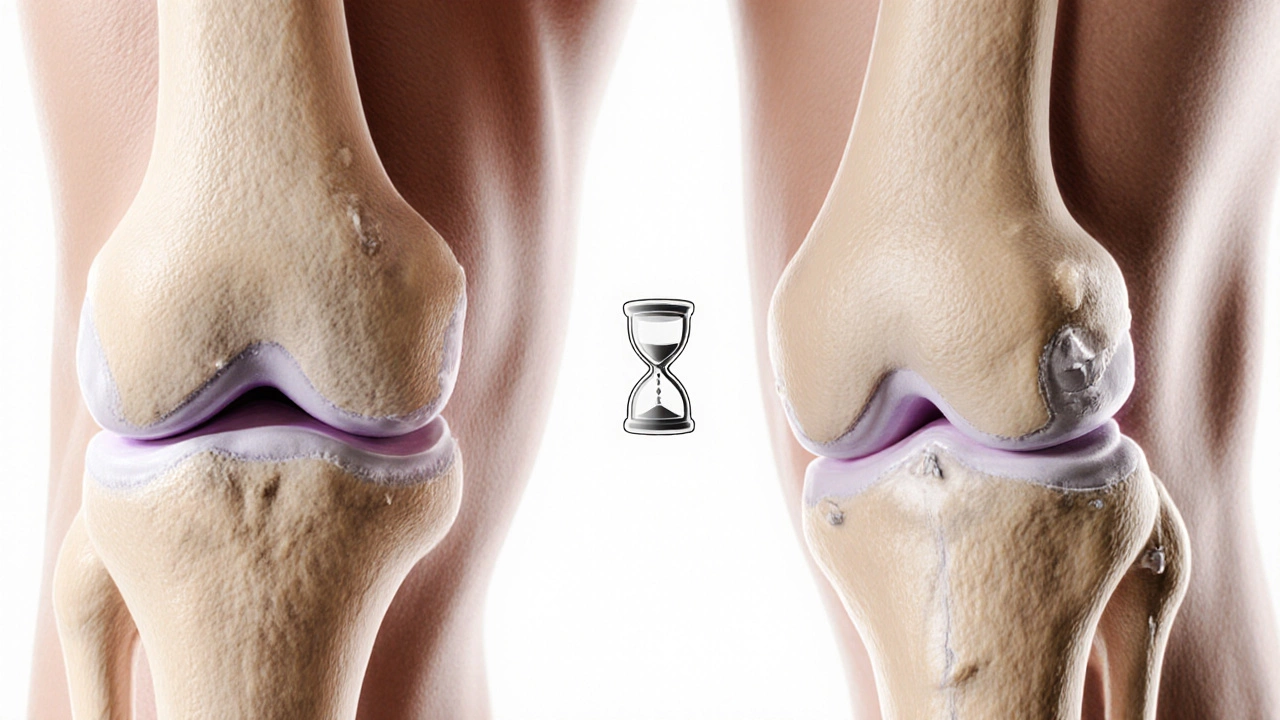Delaying knee replacement raises infection, clot and revision risks, worsens pain and mobility, and adds hidden costs. Learn the medical, functional and financial consequences of waiting too long.
Read MoreDelayed Knee Surgery – What You Need to Know
When dealing with delayed knee surgery, the practice of postponing a planned knee operation, often a knee replacement, beyond the medically advised time frame. Also known as postponed knee surgery, it can affect pain levels, joint function, and overall recovery.
Choosing to wait isn’t just a schedule change; it reshapes the whole treatment pathway. Knee replacement, a surgical procedure that substitutes damaged joint surfaces with artificial implants becomes harder as cartilage continues to erode, and the surrounding muscles may weaken. This creates a clear semantic triple: delayed knee surgery → increases joint degeneration → complicates knee replacement. At the same time, a thorough orthopedic evaluation, assessment by a specialist to determine the best timing and type of surgery can identify warning signs early and guide a safer timeline. Ignoring these signals often leads to heightened pain, reduced mobility, and a longer rehab period.
Speaking of rehab, the post‑operative phase is where most patients see the real difference. Rehabilitation, structured physical therapy that restores strength, flexibility, and gait after knee surgery is directly linked to the timing of the original operation. The longer the delay, the more muscle atrophy you’ll need to recover, which means more therapy sessions and a slower return to daily activities. A simple rule of thumb: start strengthening exercises as soon as the surgeon gives the green light, because early motion reduces scar tissue formation and speeds up functional gains. This aligns with another semantic triple: timely rehab → improves range of motion → shortens overall recovery.
Key Factors to Consider Before You Wait
First, assess your pain pattern. If you notice constant dull aches that flare up with stairs or prolonged standing, postponing the surgery could lock you into a cycle of worsening discomfort. Second, think about your activity goals. Planning a hike, a marathon, or even daily walking means you’ll need a solid joint foundation; delaying surgery may jeopardize those ambitions. Third, review your overall health. Conditions like uncontrolled diabetes or severe osteoporosis can raise infection risk, but they also make later surgery more complicated, so a balanced approach is essential.
Finally, weigh the financial and logistical aspects. Some patients delay surgery to save costs or arrange travel to a reputable center. While budgeting matters, the hidden price of a longer rehab—extra therapy visits, missed workdays, and reduced quality of life—often outweighs the upfront savings. In short, delayed knee surgery is a decision that ripples through every stage of care, from the operating room to the home exercise mat.
Below you’ll find a curated set of articles that dive deeper into each of these areas: how to evaluate the right time for surgery, what pain‑management options exist while you wait, and proven rehab techniques for a smoother comeback. Browse the collection to arm yourself with the knowledge you need before making that crucial call.





